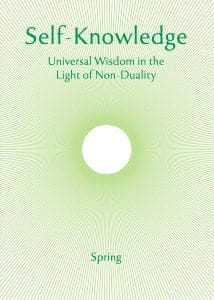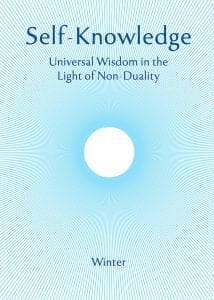Posts Tagged ‘Members’
The Non-Duality of Shri Shankara
Further extracts from H P Shastri’s essay on the Outline of the Advaita of Shri Shankara Moral virtues Let us consider the position of moral virtues in the non-dual teachings. In our practice, the inner life is considered more important than the outer life. Ethical living according to dharma makes the higher experience easier. A…
Read MoreThe Taittiriya Upanishad
Joy and fear have their play in every human life, and our natural tendency is to seek and increase that which makes us happy, and free ourselves from that which causes fear. The Taittiriya Upanishad is like a manual of the means to banish fear and secure the joy of lasting fulfilment. Its three sections…
Read MoreThe Way to Lasting Fulfilment
How do we get the best out of life? Is lasting fulfilment possible in this uncertain world, where the only certainty is our limited life span and our eventual separation from all we know and love? The good news is that from time immemorial there have been teachings that show us how to transcend life’s…
Read MoreJust Two Words
‘Yes’ and ‘No’ are arguably the most important words in the vocabulary of any language. Like the power of the ocean, their range and application are limitless. Sometimes they slide across our conversations imperceptibly; or they may surprise and shock, vanquishing hope, or igniting new possibilities. Subscribe or enrol for free guest access to read…
Read MoreSome Teachings from the Katha Upanishad
One thing that all human lives have in common is their unpredictability. There always seems to be something that escapes our control or eludes our knowledge. On the other hand, to apparently lose is to win if what happens to us prompts us to reflect on the meaning and purpose of life as a whole,…
Read MoreBhagavad Gita Chapter 18: Giving Up and Letting Go
The Bhagavad Gita Chapter 18, part one. The final chapter of the Bhagavad Gita, the eighteenth, is the culmination and summary of the whole teachings. It is one of several chapters that begin with a question. Here the student asks, what is the precise meaning of and difference between ‘renunciation’ (sanyasa) and ‘letting go’ (tyaga)?…
Read MoreThe Non-Duality of Shri Shankara
Further extracts from H P Shastri’s essay on the Outline of the Advaita of Shri Shankara Contemplation (Nididhyasana) The philosophy expounded by Shri Shankara is not rationalism like the philosophy of Descartes or Spinoza. It is a metaphysical ontology which has no peer in Western thought. The way to be established mentally in the truth…
Read MoreTowards Inner Freedom
The mind creates bondage and the mind can also create freedom. Amrita-Bindu Upanishad When we hear of some kind action, selflessly performed, we sometimes say: ‘It has restored my faith in human nature.’ This contrasts with our response to selfish and cruel behaviour, which incurs censure and regret. The wider question of whether human nature…
Read MoreThe Challenge of Suffering
The fact of suffering is a problem which concerns humanity at large. There is no one who is not afflicted by suffering, whether it be a vague dissatisfaction not fully understood by us, or anxiety which seems always to be with us, even when, outwardly, all is well. Thus the time is bound to come…
Read MoreNon-duality and Sufism
It is one of the glories of Sufism that it has never lost sight of the universality of ultimate Truth. It has not fallen into a narrow fanaticism. Jalaluddin Rumi tells in his Mathnawi how four comrades were once given a dirhem to spend between them. One of them, a Persian, said: ‘I will spend…
Read More


